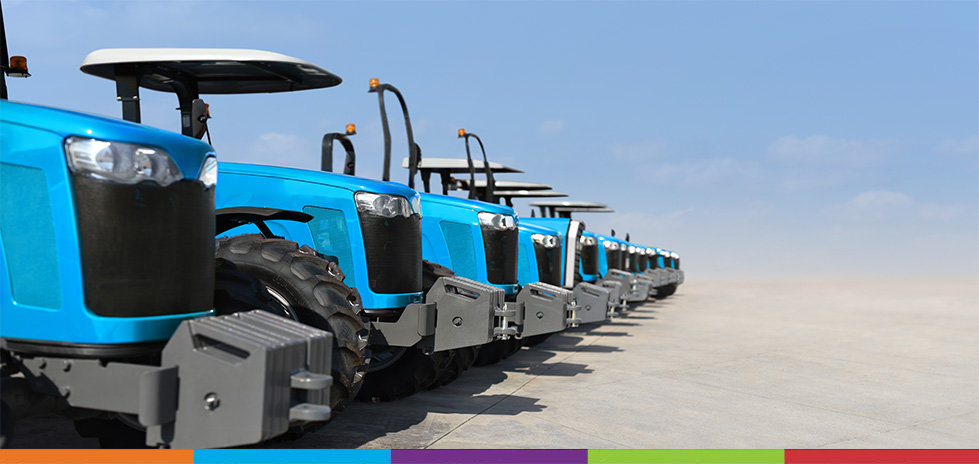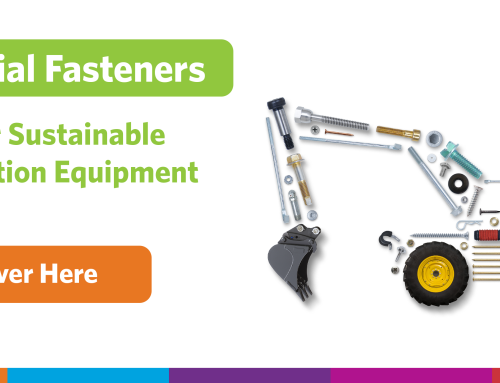
Hydrogen Powered Farm Machinery
Electric and hydrogen are no longer just buzzwords, but they’re quickly becoming a tangible option for many industries.
These alternative fuels, especially electricity, are well known for their adoption by the automotive industry, but other industries are beginning to captalise on these low emissions technologies.
Although the agriculture industry is responsible for 10% of the UK’s greenhouse gas emissions, Co2 produced by farm machinery and heating only contributed to 9% of this total amount. Nonetheless, this industry is now prioritising the introduction of low-energy technologies and renewable energy sources.
The last couple of years have brought on impressive advancements in the farm machinery industry, with businesses developing not just hydrogen-powered machines, but also refuellers, motors and engines.
Hydrogen fuels are, for the moment, more favourable than their electric counterparts for farm machinery. With lightweighting issues and range anxiety still dominating the electric market, farm machinery manufacturers are reluctant to adopt electric technologies, as their machines need to operate for long hours and withstand very heavy loads.
However, with the heavy truck industry making swathes in EV technology, it may not be long before electricity becomes a staple fuel for the agricultural industry too.
Although hydrogen technology is beginning to revolutionise farm machinery, it brings with it significant financial and logistical challenges.
Pros:
Clean fuel: Although farm machinery contributes a lower amount of Co2 emissions than other industries, the industry’s significant contribution to methane and nitrous oxide emissions means that businesses are cutting emissions in other ways, namely by switching to alternative fuels. The only waste that green hydrogen produces is water vapour, as it is obtained through electrolysis of water, making it sustainable as it’s powered by electricity from renewable sources.
Energy Efficient: Up to 80% of energy used by a regular petrol engine is wasted as heat. Hydrogen only disperses 20% of its energy, using 80% to power the machine.
Ideal for heavy machines: Hydrogen technology offers a more compact propulsion system than electric, with quick refuelling times and impressive range. Some hydrogen vehicles can travel over 500 miles from one refuel, and the charging time can take just as long as refilling a diesel car, allowing farm machinery to achieve long operating times.
Cons:
Emissions: Green hydrogen provides an eco-friendly alternative to farm machinery manufacturers, but it is incredibly expensive to produce, so many businesses are opting for grey hydrogen, a pollutant. Currently, more than 96% of hydrogen used is grey. 10 kilos of carbon dioxide are produced for every kilo of grey hydrogen obtained, and 70-75 million tonnes of hydrogen are produced globally, with a waste of almost 1 billion tonnes of carbon dioxide. However, with governments around the world priortising renewable energy sources, green hydrogen will become far more common.
Cost: Grey hydrogen costs $1-2 per kg, while green hydrogen costs $5-7. To keep hydrogen technology eco-friendly, manufacturers need to use green hydrogen, but some industry experts argue that its use in the very near future may not be economically feasible for most farmers. However, while hydrogen is expensive and diesel is much cheaper, arguably its enormous environmental benefits outweigh its costliness.
Lack of infrastructure: Hydrogen has to be highly compressed to be packed into a tank at sufficient quantities to power a machine. Plus, it can also only be transported in special pipelines, and if done so in a liquid state, it needs to be kept at a temperature of –263 Celsius, which uses significant amounts of energy. Hydrogen is therefore mostly used in the places it’s produced. Some agricultural machinery manufacturers are therefore advocating the use of on-site refuelling stations or mobile gas trailers, but these may not be viable options for many farmers. However, some researchers have recently developed advanced hydrogen storage facilities, paving the way for it to become a much more accessible fuel source.
As a continuously evolving technology, hydrogen clearly has its limitations, but it’s also a fuel with significant potential. As infrastructure develops and renewable energy sources become more prevalent, hydrogen will gradually become a much more convenient and sustainable fuel source for agricultural machinery.






